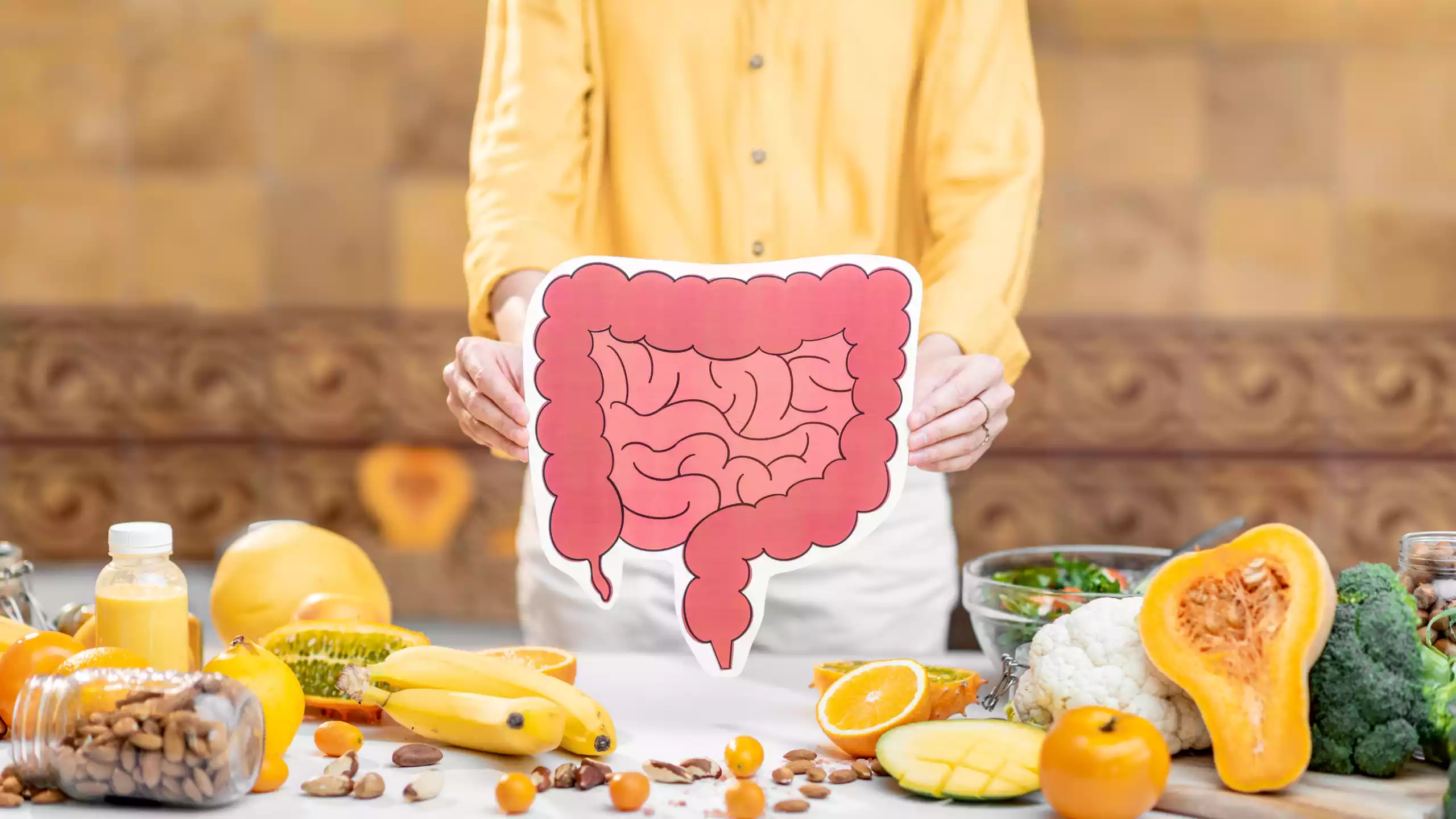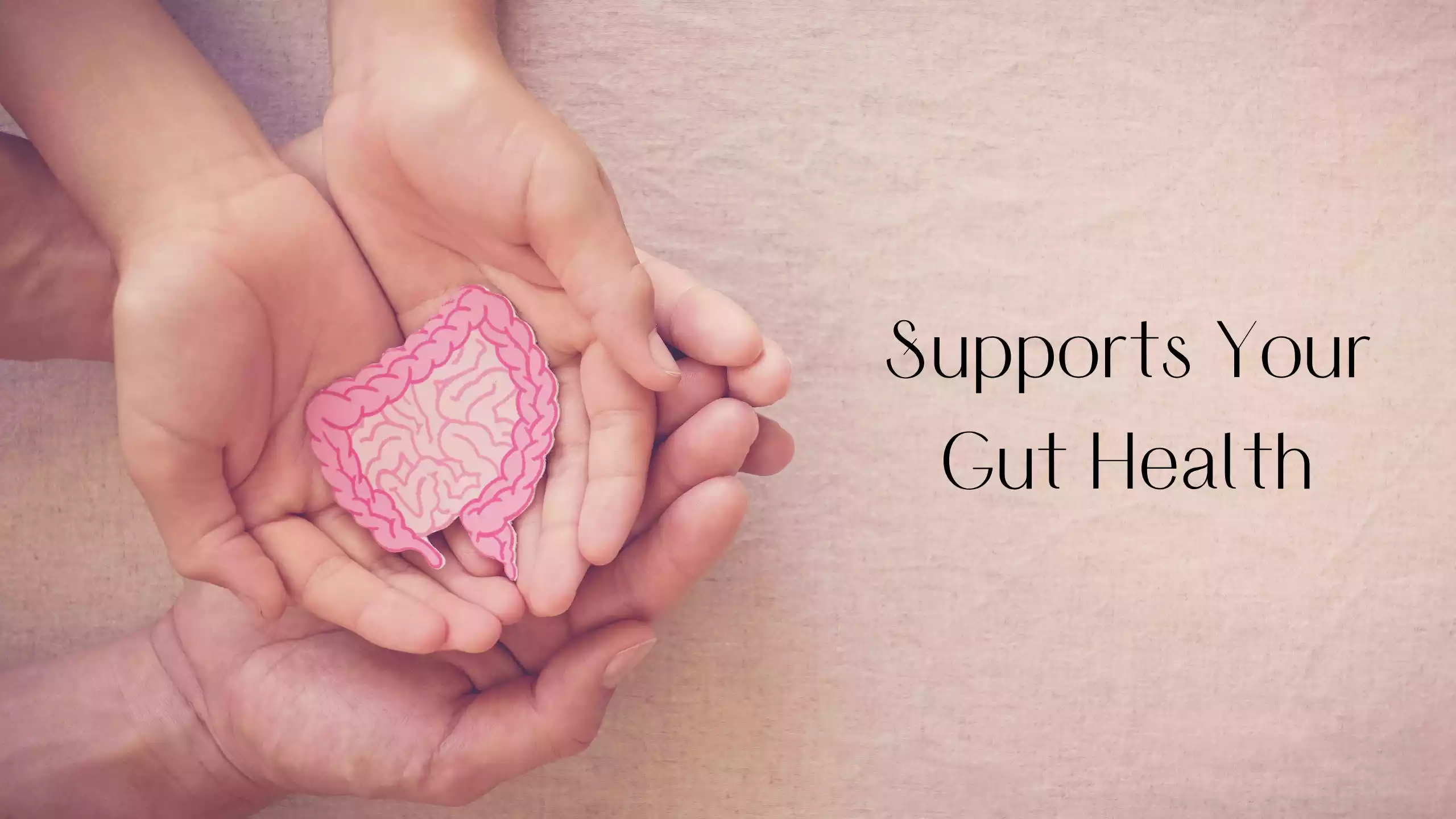Importance of Gut Health: The Impact on Overall Health
May 14, 2025
Many of us have heard about "gut health" and are aware that maintaining gut health is a good thing and can benefit our overall health. However, what does it truly mean to be gut healthy? Michele Helfgott, MD, PPG - Integrative medicine helps us answer that question while emphasizing a healthy gut microbiome and what we can do to improve it.
When people think about health, most picture exercise, sleep, or a balanced diet; however, very few know that the true foundation of overall wellness actually lies in the gut. Gut health is not only about digestion, it is connected to your immune system, brain health, energy levels, mood, and skin health - just to name a few. It's not until recently that science has uncovered just how powerful the gut is, and the impacts that caring for your gut can have for your day-to-day life.
What Is Gut Health and Why It is Important

Your gut comprises your mouth, esophagus, stomach, small intestine, large intestine, rectum, anus and the trillions of bacteria that are housed within them. These microbes help break down food, absorb nutrients, and even protect your body from disease. Your gut is a vital ecosystem that thrives balanced. Any imbalance can cause digestive issues, decreased immunity, mood swings, and even chronic conditions and the like.
Gut health can affect more than simply your stomach. Studies show links between gut bacteria and many other conditions, such as depression and anxiety, cardiovascular disease, diabetes, and obesity. The gut is like the control center of your body; when this correlates well, everything else seems to follow.
What do we mean when we talk about ‘gut health'?
Typically, gut health just refers to the health of our gut microbiome, and, further, the health and functioning of the organs, tissues and membranes that constitute the gastrointestinal system. Our microbiome is inhabited by trillions of microbes that are both beneficial and potentially pathogenic. These microbes include bacteria, fungi, and viruses that take up space in our body.
What we want is a balanced gut where the microbes are working together in unison. Our gut bacteria talk to other cells in our intestinal tract to help digest food and keep pathogens from growing.
Your gut bacteria rely on what you eat. It is important to nourish the bacteria appropriately so that the beneficial bacteria we want in our gut can grow and spread. Whole fresh foods are ideal food sources for bacteria, primarily plant food sources like fruits, vegetables, legumes, beans, nuts, seeds and wholegrains.
What is the link between mental health and the gut?
If your gut is not healthy, your immune system and possibly hormones can be affected. Add low serotonin, and you're likely not going to feel good and will suffer from mental health issues. Serotonin is a chemical mainly secreted in the gut and is also critical in terms of sleep, mood, anxiety, healing of wounds, digestion, libido, and many other functions.
How Gut Health Impacts Overall Well-Being

Let’s break down the many ways your gut influences your health:
How Gut Health Affects Your Immune System
Did you know that about 70% of your immune system resides in your gut? This is important because the gut has the function of tightly sealing which substances cross from the gut into the bloodstream. Trillions of microbes (the gut microbiome) reside on the gut lining and assist by "training" immune cells as they "see" those microbes in the gut.
A healthy gut microbiome allows us to keep bad bacteria, viruses, and toxins from upsetting our immune system. However, when our gut bacteria are upset because of antibiotics, stress, or diet, the gut gate becomes leaky. This constitutes a "leaky gut", where particles enter our blood stream and trigger chronic inflammation in the body.
Mental Health: The Gut-Brain Connection Is Real
Your brain and gut communicate with each other all the time via a massive communication highway called the gut-brain axis, which refers to the communication influenced by nerves, hormones, and neurotransmitters. One of the more surprising facts? About 90% of serotonin (the feel good chemical) is produced in the gut not brain.
When your gut becomes inflamed and your microbiome is off balance, it can hamper the production of these chemicals, thus interrupting your mood. According to Harvard Medical School, gastrointestinal distress is often both a cause and an effect of anxiety and depression. That's why people with IBS and chronic bloating, more often than not, also report fatigue, mood swings and brain fog.
So, if you're feeling anxious, low or just emotionally "off", you may want to pay closer attention to your gut. This could be where the issue originates.
Weight and Metabolism:
Weight loss isn’t only about willpower or calories in versus calories out. Your gut is also a major player in weight loss. Some types of gut bacteria are more effective at extracting calories from the food we eat. This means for example two people may eat the same meal, but depending on how the individual microbiome works, one person may absorb more of the calories than the other.
An unhealthy gut can also:
- Stimulate sugar cravings
- Affect your blood sugar levels
- Encourage the body to store fat
- Slow down your metabolism
There's even evidence that gut imbalances can alter your ability to satiate, and can lead to overeating.
If you're having difficulty losing weight in spite of eating healthy, your gut may be the missing link.
Skin Health: What Happens in the Gut Shows on the Skin
This is why skin conditions such as acne, eczema, rosacea, and psoriasis are often linked to gut health. If your gut lining is inflamed or leaky, it sends out inflammatory signals that impact your entire body, and your skin is one of the first places it shows up. In many cases, food intolerances are one of the biggest triggers behind this inflammation.
This is called the gut-skin axis. Poor diet, food sensitivities, or harmful gut bacteria overgrowth can lead to skin breakouts, skin redness, skin dryness, or rashes. Many dermatologists are now recommending gut-healing diets along with topical treatment for chronic skin conditions.
If your skin issues are linked to food intolerances, we can help you find what’s triggering them. Our 6-week comprehensive program uses testing and a step-by-step plan to calm inflammation and support healing.
👉 Book a free 30-minute consultation call to see if it’s right fit for you.
Energy and Sleep:
If you often feel fatigued, vaguely mentally clear, or like it is even a trial just to focus after a solid night’s sleep. You may be looking right at your gut. How so:
- Poor digestion means you cannot even get the nutrients in your body, similarly iron, magnesium, or B vitamins that we know are critical for energy.
- Inflammation of the gut can raise stress hormones like cortisol, which can disturb sleep cycles.
- The imbalance of gut bacteria can alter melatonin production, a hormone that allows you to fall asleep and helps you stay asleep.
Common Signs Your Gut Needs Help
- Often feeling bloated or having gas
- Constipated or diarrhea
- Constantly low energy or fatigue
- Brain fog or hard time concentrating
- Noticing mood swings like anxiety or irritability
- Having skin issues like breakouts or inflammation
These symptoms mean your body is telling you: something is wrong inside.
Backed by Research
- A 2020 study published in Cell Host & Microbe found that people with diverse gut bacteria tend to have better immune responses and lower inflammation markers.
- Another research from The American Journal of Psychiatry showed improvement in depressive symptoms after participants consumed probiotic-rich foods for 8 weeks.
Even simple changes can make a big difference.
Top 10 Foods to Improve Gut Health Naturally
Your food choices can determine your gut health and are one of the most powerful ways to impact it. Here are the 10 best foods for gut health:
- Yogurt – Loaded with probiotics that enhance good bacteria (if not lactose intolerant).
- Kimchi – A spicy fermented food with tons of live cultures.
- Sauerkraut – Fermented cabbage and very gut-friendly.
- Garlic – A natural prebiotic that nourishes healthy gut bacteria.
- Onions – Another great prebiotic for the good microbes.
- Bananas – Easy on your stomach and helpful for digestion.
- Bone broth – A nice food and nourishes with soothing properties for the gut lining and helps absorption.
- Oats – Fiber-rich food that helps to keep everything moving smoothly.
- Apples – Contain pectin (a fiber that feeds gut bacteria).
- Green tea – Antioxidant-rich and helps to decrease inflammation.
How to Boost Your Gut Health: Tips from Sanna, a Certified Nutritionist
You do not have to make big changes overnight. Experts recommend starting with the following proven steps:
- Eat more fiber: It helps in fuels the good bacteria in your gut and promotes smooth digestion.
- Cut down on sugar: It promotes bad bacteria and increases inflammation.
- Stay hydrated: A good amount of water helps in flushing out toxins and supports digestion.
- Add fermented foods: Eating one serving a day is helpful.
- Limit antibiotics: Use only when needed; antibiotics are like a atomic bomb to your insides, if you have to take them, ensure you get industrial strength probiotics with it so repopulate the good bacteria
- Manage stress: Try meditation, deep breathing, or yoga.
- Sleep well: Poor sleep will compromise your gut lining and microbes.
How we Supports Your Gut Health

SannaLife is led by a Swiss-based nutritionist and kinesiology expert, Sanna Leerkes, that combines Nutri-therapy and Functional Kinesiology in an individualized and data-based approach that emphasizes:
- Food Intolerance Testing: Food intolerance testing plays a key role in this approach by helping identify specific foods that your body may struggle to digest. When these foods are consumed, they can cause discomfort such as bloating, gas, and stomach cramps, leading to inflammation in the gut. By avoiding these trigger foods, you can reduce gut irritation, improve digestion, and support better nutrient absorption. This testing helps restore digestive balance, contributing to overall gut health and well-being.
- Weight Management: Using kinesiology and individualized nutrition to trigger the body's biological ability to help it lose excess weight and stabilize blood sugar.
- Reducing Inflammation: Identifying personal factors based on diet, food intolerances, and/ or levels of stress to create personalized programs that tackle inflammation and decrease it from the ground up.
- Promoting Longevity: Using advanced kinesiology concepts along with individualized lifestyle and nutrition regimens to promote overall well-being for a longer and more energetic life.
- Balancing Hormones: Identifying factors that disrupt your hormone balance and creating a personalized program to restore that balance and boost your energy, mood and sleep.
and you would like to know more about the 6 week program that helps with this, book a FREE 30 minute appointment with Sanna to see if this program is for you.
Final Thoughts
A healthy gut can help you absorb nutrients better, it can help improve your immunity, and it may even help to create a healthier mindset and body as a whole. You don't have to keep suffering through digestive issues or guessing what's going wrong. You can get the right help and recover your gut and your health. If you are ready to feel better from the inside out, we are here to help you get there.
Stay connected with news and updates!
Join our mailing list to receive the latest news and updates from our team.
We hate SPAM. We will never sell your information, for any reason.




